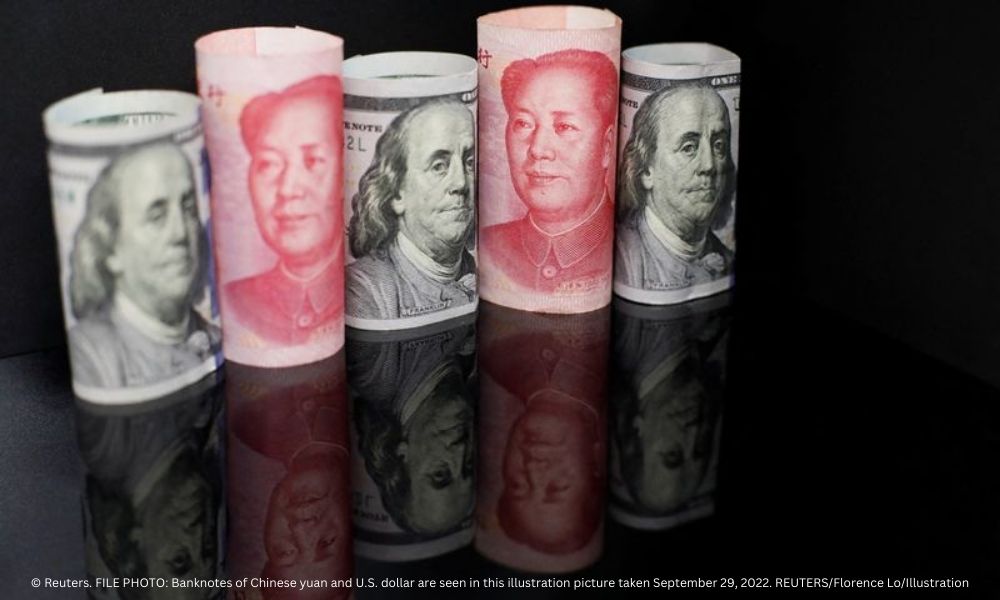
By Kevin Buckland
TOKYO (Reuters) - The dollar held near the centre of its range this week against a basket of major peers, as investors awaited key U.S. inflation data later Thursday that could influence the path for Federal Reserve policy.
The U.S. currency edged to a one-month high versus the yen as markets took the view that the Bank of Japan will be slow to exit stimulus, even with traders mostly betting the Fed is done with rate hikes.
|
Are you a Tax Lawyer in USA? |
The Australian and New Zealand dollars hovered close to two-month lows amid a worsening economic outlook for key trade partner China. The yuan pulled a bit further from a one-month trough after the People's Bank of China again set a stronger than expected official exchange rate in a sign of displeasure at recent weakness
The U.S. dollar index - which measures the currency against six counterparts, including the euro and yen - was little changed at 102.50 in the Asian morning, after trading roughly between 101.98 and 102.80 this week.
The dollar has benefited from safe-haven demand in the wake of an ongoing run of poor Chinese economic data, while the narrative continues to build for a soft landing for the U.S. economy as price pressures mitigate.
Wall Street economists forecast the core consumer price index (CPI) to have risen 4.8% year-on-year in July, unchanged from the previous month.
Money markets currently lay 86.5% odds for the Fed to forgo another rate hike at its September meeting, and foresee the next move as a cut, likely in spring of next year.
However, a climb in crude oil prices, which settled at its highest since January overnight, has clouded the outlook, according to IG market analyst Tony Sycamore.
"Surging energy prices are officially the new elephant in the China shop, threatening to break the disinflation/soft landing narrative," Sycamore wrote in a client note.
"Considering the recent rally in energy prices, we think a higher-than-expected inflation number tonight will be more dimly frowned upon, and the market will be more likely to overlook a 'good' number."
The dollar was little changed at 143.79 yen, after earlier drifting to the highest since July 7 at 143.90.
Despite the BOJ's decision to relax its control of long-term yields at the end of last month, policymakers have stressed the change was a technical tweak aimed at extending the shelf life of stimulus, chiefly defined by the negative short-term interest rate.
"Weak Japanese labour cash earnings data earlier this week has increased our conviction that the BOJ will leave interest rates unchanged at ‑0.1% over the rest of the year," Commonwealth Bank of Australia (OTC:CMWAY) strategist Kristina Clifton wrote in a note.
"The relative monetary policy outlooks between the U.S. and Japan suggests USD/JPY is likely to stay supported."
Elsewhere, the euro was about flat at $1.09695, after trading in an increasingly narrow $1.0930-$1.1042 range since last Friday.
Elsewhere, the Chinese yuan tacked on about 0.1% to 7.2235 per dollar in offshore trading after the PBOC set a stronger official mid-point than the market consensus for a second day. The offshore yuan sank to the weakest since July 7 at 7.2514 on Tuesday.
|
Are you a Tax Lawyer in USA? |
Data on Wednesday showed the Chinese economy slipped into deflation last month, after a report the previous day showed a bigger than expected slump for both imports and exports.
Overnight, U.S. President Joe Biden signed an executive order prohibiting some new U.S. investment in China in sensitive technologies like semiconductors.
The Aussie, which has tended to follow the yuan closely this week, was little changed at $0.6530, off Tuesday's trough at $0.6497, the lowest level since June 1.
New Zealand's kiwi was flat at $0.6053, just above Tuesday's low of $0.6035, which was the weakest since June 8.